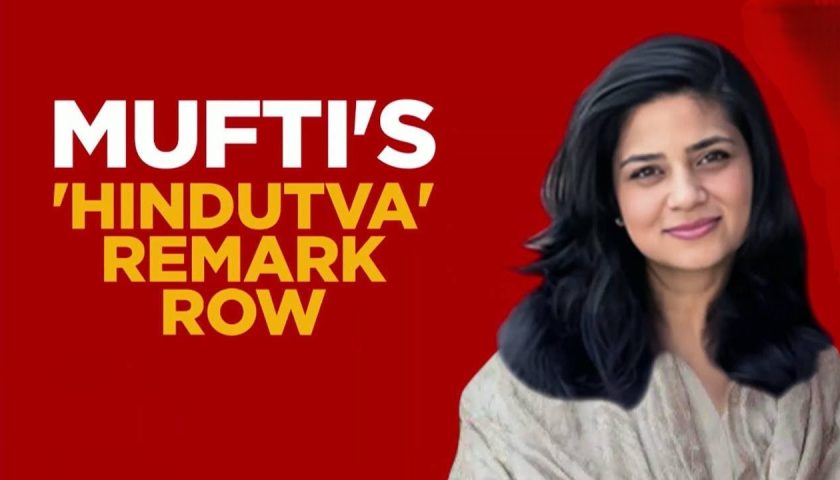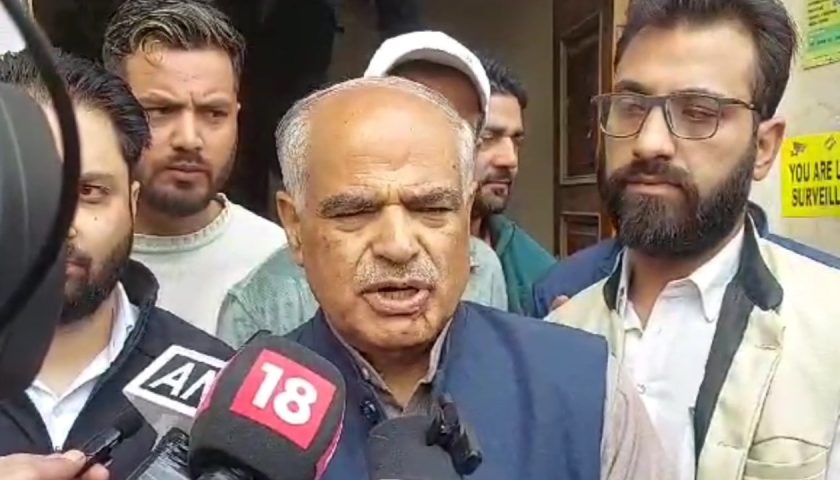Jammu and Kashmir Advocate General Jehangir Iqbal Ganai on Friday said Article 35A, which is being contested in the Supreme Court (SC) through a number of petitions, “is not a part of the Indian Constitution.”
“There is an argument projected that the President has no powers to amend the Constitution. The fact of the matter is Article 35 (A) is not part of the Constitution of India. It’s a part of the Constitution only applicable to J&K. There is a difference. So there was no requirement of Parliament amending it,” Mr. Ganai told The Hindu in an interview.
He said Parliament as such had no powers to add any article of the Constitution to J&K’s Constitution except to Article 370. “Every Article has been made applicable to J&K through Article 370. In Article 370, the President has been given powers to amend, alter or modify any article viz-a-viz J&K, with exceptions and modifications,” he added.
Referring to 1954’s presidential order on Article 35(A), which grants special rights to citizens of J&K over property, jobs, Mr. Ganai said the Article related to fundamental rights was in “desirable” and “not essential list.”
“The Constituent Assembly of J&K has been of the opinion, as per the recorded debates, to have own Articles over fundamental rights. However, after the Delhi agreement of 1952 under Clause 6, the Centre appreciated the need to have special rights for J&K. And in fact acknowledges these special rights. Then Prime Minister Pandit Jawaharlal Nehru issued a statement in Parliament over deliberations held between the State and Centre over special rights,” he said.
He said Mr. Nehru recognised two issues in Parliament — one regarding the citizenship and special rights, while making reference to the special rights then existing since 1927 of Maharaja Hari Singh’s J&K.
“Thus, the issue of special rights was put before Parliament and debated and accepted there,” said the Advocate General.
In the follow-up of Parliament debates of 1954, the Jammu and Kashmir Assembly formed two committees, one on basic constitutional structure and another on fundamental rights.
“Subsequently, the Constituent Assembly adopted a resolution on Article 35 (A). The annexure was sent to the Centre for concurrence and not for any approval from the President. In fact, all presidential orders require concurrence of State Assembly equally,” he said.
Claiming J&K is in a strong position to defend Article 35 (A) in the SC, he said, “The issue also brings to the fore the matter of trust reposed by the State and the Centre in each other then. One cannot negate the trust agreed upon in the past now. We believe the court is there to do justice. We hope the SC will decide the matter in accordance with law. The Constitution must stay supreme,” said Mr. Ganai.
The SC recently listed the petitions regarding Article 35(A) for the last week of February next year after the Centre filed a petition for postponement in the wake of the appointment of special representative Dineshwar Sharma on Jammu and Kashmir to hold talks with stakeholders.






